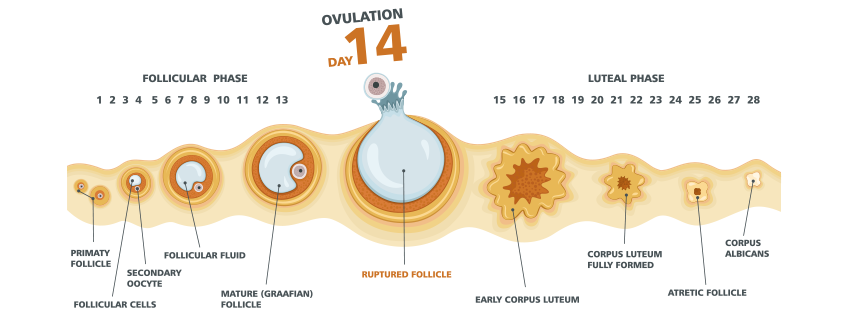You take a home pregnancy test and it’s positive!
You’re on the seventh cloud and excitement of becoming a mother fills you up to the bones.
Well, that is not exactly how it works for a lot of couples. Conceiving a baby requires a lot of planning, continuous efforts and tracking your ovulation cycle religiously.
Now coming to ovulation; thanks to technology and modern times, we have ovulation test that makes the whole process a lot easier. So, if you’re stuck in the vicious cycle of trying and testing then here’s a list of things you should know about ovulation tests, pregnancy, and fertility in general.
The Term Ovulation:
As you already know, ovulation is the process where your body releases an egg which is further fertilized by a sperm and transforms into a zygote. This process seems easy in theory but there are a lot of mechanics involved that dominate the chances of a pregnancy.
Tests make it easier:
Yes, an ovulation test makes it easier but it is not very difficult to calculate it manually either. Ovulation usually happens around the 14th day of your cycle. So, all you have to do is calculate the 14th day from the day of your first period and voila! That’s approximately the date of your ovulation.
Know the basics:
Do you know that a female is born with over a million eggs in her ovaries? But, the release of eggs only starts after your menarche (first period). As you grow older, the quality and quantity of these eggs also deteriorate which leads to the saying that getting pregnant after you cross 35 is difficult. Yes, it is difficult but not impossible.
You can read more about that topic here:
Timing matters:
You should have intercourse when you’re ovulating, right? Wrong!
Intercourse should always come before ovulation as sperms can survive up to 5 days in a female body which increases the chances of pregnancy as compared to coitus done on the day of ovulation.
Learn about your hormones:
Ovulation and the whole process of conceiving are ruled by the hormones in your body. There’s LH (Luteinizing hormone) that peaks before a day or so before the day of your ovulation. Similarly, there are a lot of hormones involved that you should read about to understand the process better.
Investing time:
It is not going to happen in a day or two. Conceiving a baby takes time and efforts. So, you will have to prepared beforehand to invest a lot of time and research to get it right.
Seek help:
Consulting a gynecologist doesn’t mean there’s something wrong with your body. But, making sure that you seek consultation in time is of utter importance. So, do not be shy and seek help because time is a ruling factor here.
So, these were all the points that you should know about ovulation beforehand. Follow these and we hope the next time you take a pregnancy test, it brings you good news.
































